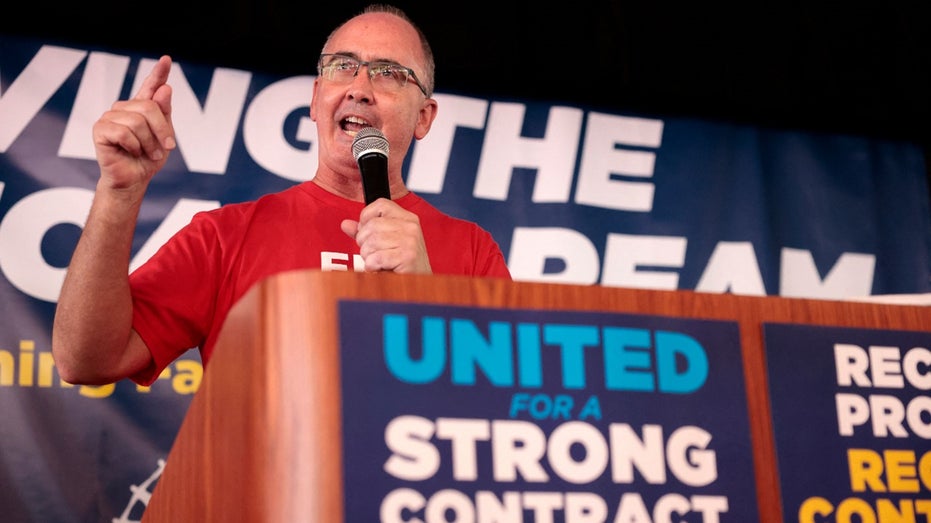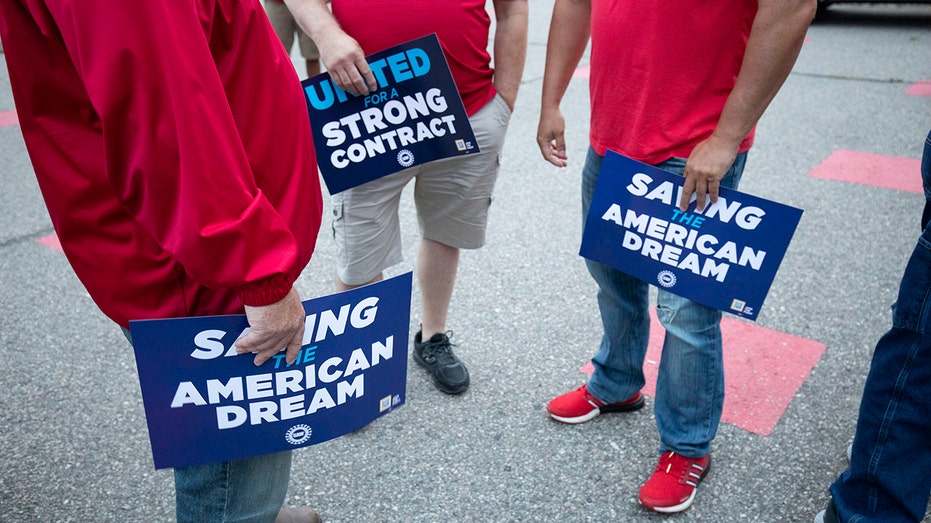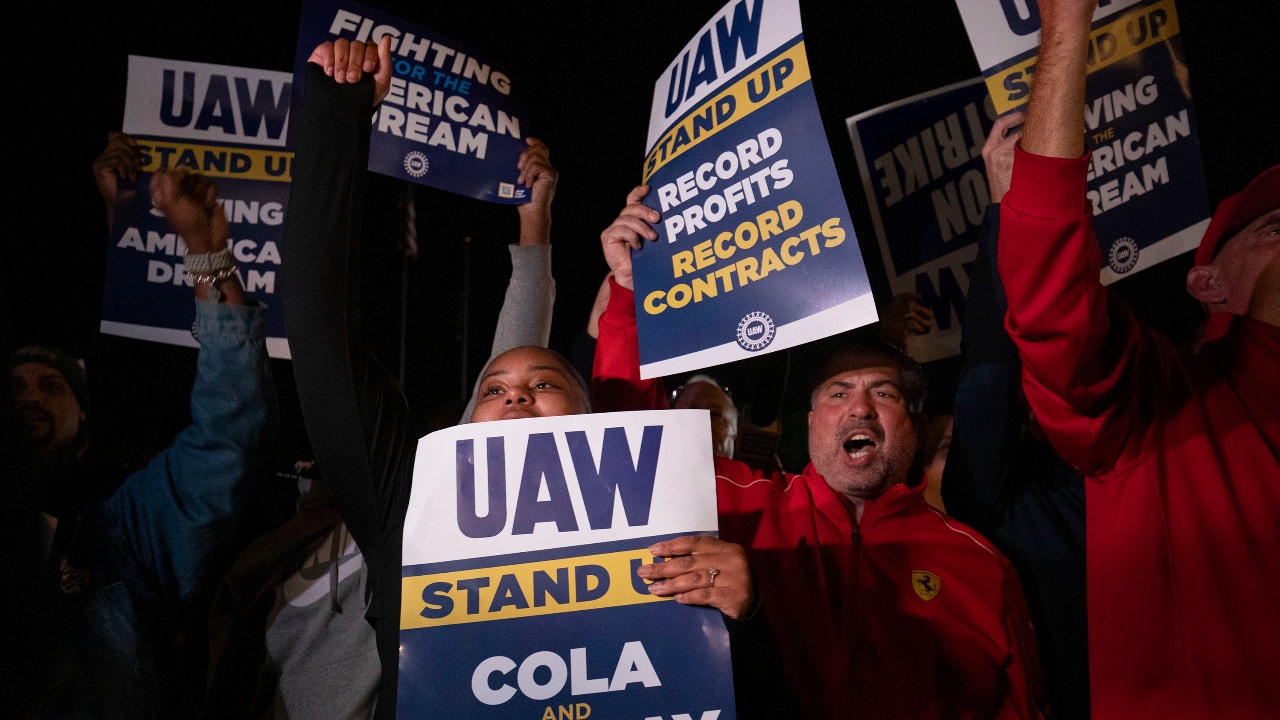The United Auto Workers union went on strike at three plants owned by the Big Three automakers – General Motors, Ford and Stellantis – after the two sides did not reach a new labor deal on Thursday night.
The workers are striking at a GM plant in Wentzville, Missouri; a Stellantis plant in Toledo, Ohio; and a Ford plant in Wayne, Michigan. Plants that were not called upon to strike will work without a contract, UAW President Shawn Fain said.
“The UAW Stand Up Strike begins at all three of the Big Three,” the union said in a post on X, formerly known as Twitter, shortly after midnight on Friday.
LOOMING UAW STRIKE COULD COST US ECONOMY MORE THAN $5B IN JUST 10 DAYS
Fain says this strategy will keep the automotive corporations guessing, with leadership determining further strikes.
UAW workers will hold a rally on Friday at 4 p.m. ET.

The main point of contention between the two sides is higher pay, with Fain saying the union is seeking a more than 40% general pay raise for rank-and-file members over four years.
FORD, GM, STELLANTIS DEALERSHIP BRACE FOR POTENTIAL UAW STRIKE
Full-time assembly plant workers at Ford and GM earn $32.32 an hour, while part-timers currently make about $17 an hour. Full-time employees at Stellantis earn $31.77 an hour, and part-time workers earn close to $16 an hour.

The union is also pushing for making all temporary workers at the automakers permanent, cost-of-living adjustments, increases in pension benefits for current retirees and restoring pensions for new hires, among other benefits.
| Ticker | Security | Last | Change | Change % |
|---|---|---|---|---|
| GM | GENERAL MOTORS CO. | 33.66 | 0.00 | 0.00% |
| F | FORD MOTOR CO. | 12.62 | -0.02 | -0.16% |
| STLA | STELLANTIS NV | 18.84 | -0.11 | -0.58% |
Fain has called the demands the “most audacious and ambitious list of proposals they’ve seen in decades.”
Experts say the strike could cost the U.S. economy billions of dollars.
That is according to a new analysis from the Anderson Economic Group, a Michigan-based think tank that specializes in the economic impact of labor strikes. The report estimates that economic losses from a 10-day work stoppage could cost about $5.6 billion.
“Even a short strike would impact economies throughout Michigan and across the nation,” said Patrick Anderson, CEO of the Anderson Economic Group.
That figure includes manufacturer losses of $989 million and lost direct wages of $859 million. It does not take into consideration strike pay, unemployment benefits, unemployment taxes, income taxes, government spending or settlement bonuses.
FOX Business’ Megan Henney contributed to this report.
Read the full article here













Leave a Reply